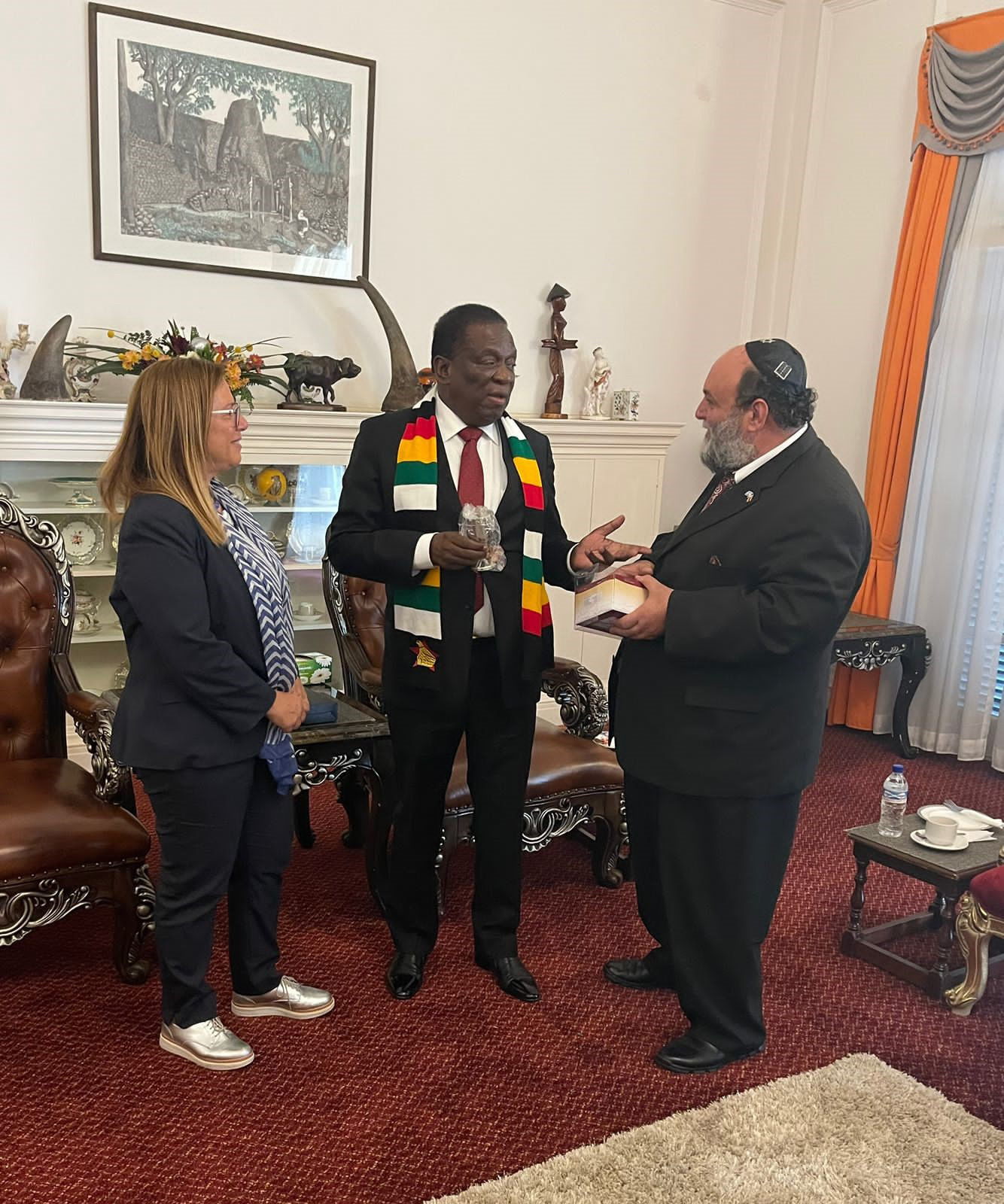
Featured Item

African Jews should leave defence of Israel to ambassador, says Silberhaft

click to dowload our latest edition
CLICK HERE TO SUBSCRIBE TO OUR NEWSLETTER


Published
2 years agoon
Rabbi Moshe Silberhaft, affectionately known as “the travelling rabbi”, shocked a Union of Jewish Women audience on 12 September by saying that South African Jews should stop defending Israel and leave it to the ambassador.
Silberhaft, the national director of the Small Jewish Communities Association (SJCA) and the African Jewish Congress (AJC), said that although “we’re all passionate Zionists, we [as the AJC] have a policy that if a government in Africa speaks out against Israel – which in most cases they don’t – it’s not for us to say, ‘What are you talking about, Israel doesn’t practice apartheid, etc?’ Yes, if we didn’t have the state of Israel, we would all be back in the gas chambers. There’s no question about it.”
He went on to say, “In our African communities, whenever there’s anything anti-Israel, we contact the Israeli ambassador and ask him to deal with it. That’s why our small Jewish communities in Africa live a free and safe life. There isn’t that link between Jews defending Israel and it being a political issue. I can see you [the audience] are unhappy with what I’m saying, but it’s a fact, it’s a reality.
“Israel needs to stand up for itself. We can’t be the messengers of Israelis, even though we can’t tolerate anti-Israel speech. We, as the remnants of a once very powerful community, need to find our perspective, our place, and tread carefully because the government and all the people around us don’t like us.”
Silberhaft expressed concern about people leaving South Africa.
“It blows my mind how when people left [South Africa in the past], most left because they couldn’t handle apartheid. They were so morally upstanding,” he said.
“My question is, why don’t they come back now that apartheid is over? They’ve realised that was a bubbe-meise [fable] to get out of here. But they’ve abandoned their families, they’ve abandoned their parents’ graves. How do you do that? My message is that we’ve got to make sure our children don’t do it to us.”
Silberhaft said the first identified Jews arrived in South Africa in 1820. “We went on to have a great 200 years as a Jewish community. The fact is that things have changed here, and people are moving. Jews are always on the move. The minute there’s uncertainty, Jews move because we all know that nobody ever comes to our assistance – not even Jews come to our assistance – so we have to survive ourselves.”
Silberhaft said Jews were on the move in other African countries as well. “Zimbabwe at its peak had 7 500 Jews, now it has less than 200. In country communities in the Free State in 1950, there were 45 active Jewish communities, everyone had a shul and a cemetery. Today, there are probably four. Zambia at its peak had 18 000 Jews, today there are 30.”
A couple of months ago, Silberhaft travelled to Zimbabwe with the Israeli ambassador and met President Emmerson Mnangagwa. “In a meeting, there were eight ministers, and every one of them had something positive to say about Jews while they were growing up. Most of them had Jewish doctors on their farms or little dorpies. Even the minister of foreign affairs told us that he fell out of a tree and a Jewish doctor saved him.”
Today, 195 Jews reside in Mauritius, said Silberhaft. “It’s the only country [in Africa] where the number of Jews is growing. The reason for that is that it’s a tax haven, so lots of Jews are hiding there. We built a museum to record the history of Jews in Mauritius. We’ve managed to get the education ministries in Mauritius and Zambia to include a six-week course on the history of Jews in both those countries.
“We now have a Jewish museum in Livingstone, Zambia. Edwin Wulfsohn, who has turned 80, sold his bank in London and wants to bring 80 items of interest to his family to the museum. We’re busy negotiating a new museum in Livingstone to preserve the history of the once active and prominent Jewish community there.”
Asked by the SA Jewish Report if Jewish customs differ in small communities across South Africa, Silberhaft said, “We’re lot more tolerant. Unfortunately, the Jewish leadership today believes that South African Jewry is Sandton, Glenhazel, and Sea Point, as opposed to Rabbi Cyril Harris, who travelled to every Jewish community.”
The SJCA makes sure that Jews in far-flung communities are safe and can worship uninterruptedly, said Silberhaft. It organises Jewish activities, but is also involved with the wider community, helping to feed local kids and do other outreach programmes, he said.
“We give out calendars, yahrzeit candles, and Chanukah candles. We look after almost 200 Jewish cemeteries in South Africa, nearly 30 000 graves,” said Silberhaft, pointing out that “I cannot allow, during my reign of terror, for cemeteries to be neglected”.
Silberhaft spoke of cases in which Jewish people had given instructions that they wanted to be cremated. “We know that’s the greatest Jewish sin and, in one case, we actually stole the body from the funeral parlour and buried the person before the kids arrived to make sure they weren’t cremated.”